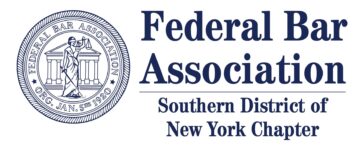THE FBA SDNY UNITED NATIONS REPORTER SERIES
By Zaneb Manzoor[1]
FBA UN Reporter
June 13, 2020
At the May 2020, Africa Dialogue Series 2020 program entitled, “COVID-19 And Silencing the Guns in Africa: Challenges and Opportunities,” Secretary-General António Guterres emphasized the impact of COVID-19 on peace and security in Africa. He explained that the pandemic has caused hardship globally and exposed vulnerable parts of our society. It requires a uniform swift global response as the cases emerge.
He remarked that the African Governments have done a lot to advance the members of their communities. Their economic gross output has been strong, the digital revolution has been emerging, and free trade areas have been agreed upon. However, the pandemic has threatened such progress as it may aggravate long-standing policies and inequalities, as well as heighten hunger, and severely impact the health of the community which is vulnerable to disease. Noting that COVID-19 has already taken over 2,500 African lives, he expressed his solidarity with the people and governments of African countries in fighting the disease. Issues arising from this are leading to a decline in tourism, and the opening of the free trade zone has been pushed back. Demand for Africa’s commodities are down and the communities are being pushed into extreme poverty.
He said that he has admired how the African countries and the African Union (AU) have moved rapidly to tackle this by enforcing quarantines and lockdown border closures. Noting that the countries have drawn from their experience with Ebola and HIV aids to counter the current situation, and have been successful in overcoming mistrust of the government and security forces. The AU has established an Anti-COVID-19 fund and has the devotion of all the members of the African Union Bureau.
As a result, The United Nations (UN) agencies, country teams, humanitarian works, and peace organizations have provided their complete support by supplying testing kits, respirators, and other supplies. A $5.6 billion global humanitarian response plan has been put in place that aims to aid the twenty-two African countries which are facing issues with humanitarian needs and hosting refugees. Despite this support, the Secretary-General noted that there is still a need to strengthen the system by maintaining food supplies to avoid a financial crisis and to continue support for education. It is in further need of support to counter the lost income and export earnings.
He explained that the UN has participated in global collaboration for the acceleration of the development production and equitable access to the new COVID-19 supplies. The UN has been welcoming generous contributions in the search for the vaccine and the utmost commitment to ensure that it is going to be available as a global public “good” which is accessible to all. There has been good progress following the conference held earlier by the European Union on vaccine treatments and tests.
His concluding comments called for a global response package amounting to at least 10% of the world’s economy to aid the African continent, i.e. 200 Billion USD. A meeting was convened between the Secretary-General himself, the Chair of the African Union (AU), the Chairperson of the African Union Commission (AUC), the International Monetary Fund (IMF), and the World Bank regarding creation of a financial plan in order to allocate resources for the COVID-19 response. As per the Secretary-General, the detailed plan calls for a debt standstill for countries that are unable to service that debt. There will be targeted debt relief and an all-embracing approach to structural issues in the international debt plan to prevent defaults.
With respect to Silencing the GunsinAfrica initiatives, he noted that the pandemic has affected the capacity to support such peace and security initiatives. He recommended that African governments continue encouraging efforts to silence the guns and address violent extremism. He noted that if there is a failure by the international community to respond adequately it may harm progress that has been made towards this 2020 initiative and achieving the Africa Agenda 2063 (sustainable development plan). He has invited support for a global ceasefire by the Chairperson of the AUC. More than fifteen governments, religious leaders, two hundred plus civil society groups, sixteen armed groups, and regional organizations have endorsed this. He has welcomed the temporary ceasefire announced by armed groups in Cameroon, South Sudan, and Sudan.
His final message was that the UN, in collaboration with the AU, is assisting in
a variety of areas ranging from mine action, human rights, safety, and
security. It has been continuously protecting civilians, helping countries that
require COVID-19 related measures, and has engaged simultaneously with peace
negotiators and other stakeholders. The stimulus package in his words, “must
prioritize” putting the money in hands of women to increase their social
protection. Lastly, it is imperative for African efforts to empower Africans to
ensure that human rights be respected. The need for retaining the trust of the
public is essential to avoid disorder as these are still the early days of the
pandemic in Africa.
[1] Zaneb Manzoor is an LL.M. Graduate (Spring 2020) with a specialization in Intellectual Property and Information Technology Law from Fordham University School of Law.
